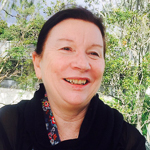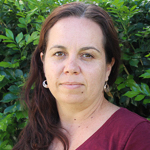A piece of CAIK
In just two years, the Centre for the Advancement of Indigenous Knowledges has transformed the way UTS interacts with and understands Indigenous cultures.
In a sunny corner of building 10, three academics are shaping the future of the university.
Professor Michelle Trudgett, Professor Susan Page and Associate Professor Gawaian Bodkin-Andrews have played a leading role in the establishment of the UTS Centre for the Advancement of Indigenous Knowledges (CAIK). Together, they’re making a major contribution to the progression of Indigenous research and scholarship at UTS.
“Most of our research is based around Indigenous education — that’s the centre focus of what we do,” says Trudgett, CAIK’s Director.
“For Susan and I, our interest is very much based on higher education. We recently completed an Australian Research Council funded study on the supervision provided to Indigenous doctoral students. I’m particularly passionate about research that looks at Indigenous postgraduate student experiences, and that was the topic of my doctorate when I did it a decade ago.
“Gawaian’s research area is predominantly racism and discrimination in education, and he is one of the most renowned academics in the country in that space.”
Since CAIK’s inception in February 2015, the team have attracted ten higher degree by research students. Incredibly, supervising these students is a sidebar to CAIK’s broader mandate — the team was brought to UTS specifically to embed an Indigenous graduate attribute into every course at UTS.
But the research program has taken on a life of its own, complementing CAIK’s original mission while simultaneously creating a significant body of new knowledge that directly involves or impacts Indigenous Australians.

The diversity of this knowledge is evident in the wide range of projects that CAIK students are undertaking. PhD student Grace O’Brien is investigating the educational experiences of male Indigenous youth who are incarcerated in Queensland, and what she calls the ‘school to prison pipeline’.

Lisa Oliver, meanwhile, is a Master of Education student and a Gamilaraay woman. She is supervised by Page, and investigating the role of Aboriginal women’s groups in building social capital. It’s a topic close to her heart — as an Aboriginal woman and a women’s group participant, Oliver has had first-hand experience of the value of these groups in a community setting.
